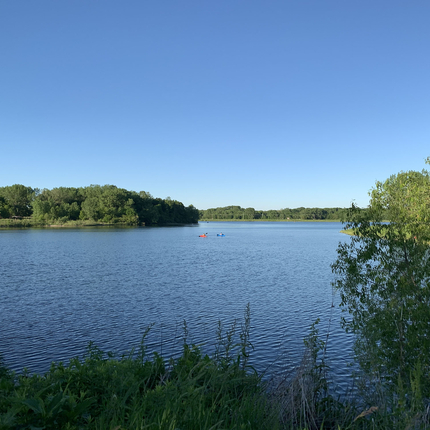By Cody Smith, former staff member
Iowa’s newly-elected Legislature is set to be sworn in for the 2021 session in January. While there will be some new faces in Des Moines, one thing is certain—Iowa’s water quality remains a key challenge.
Iowa has an agricultural system which is remarkably effective at controlling water for higher yields and more productive farmland. Much of this success can be attributed to the vast network of drainage infrastructure that whisks excess water away, allowing for efficient machinery travel, seed germination, and disease resistance.
While critical for farming, this streamlined system of managing water for agricultural productivity also enables the swift delivery of nutrients (i.e. nitrogen and phosphorus) to surrounding lakes, rivers, and streams. Nutrient-laden water leads to algae blooms, and when the algae decays, hypoxia occurs, creating areas of low dissolved oxygen levels, called “dead zones.”
This year, lawmakers will face the same question that has dogged their predecessors for years—what can we do to maintain agricultural productivity and also improve water quality?
Fortunately, locally-directed efforts have shown a watershed approach that emphasizes planning and long-term staffing of watershed coordinators achieves both goals. Investing state resources in locally-directed partnerships, such as Watershed Management Authorities, can accelerate progress toward reaching our water quality goals while providing the greatest return on investment for taxpayer dollars.
If we are to fully address this challenge, the Legislature needs to invest in our local leaders and farmers
Click here to read our report on this topic at cfra.org/publications.





